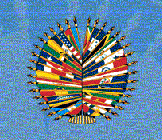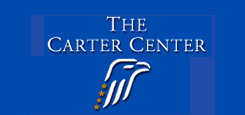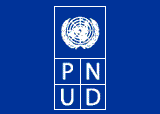CNN
Army presence increases in Caracas
'We want a return to peace and security,' general says
Friday, November 15, 2002 Posted: 11:04 AM EST (1604 GMT)
Army soldiers patrol Thursday in the Chacao neighborhood of Caracas.
CARACAS, Venezuela (AP) -- Workers scurrying to their jobs gawked at
the sight of rifle-toting soldiers on Caracas' streets Thursday,
stunned by the show of force intended to stop a spate of political
violence.
Stone-faced troops -- automatic rifles in hand -- stood guard beneath
bridges, at busy intersections, along shop-lined streets and at subway
stations.
Responding to deadly violence Tuesday involving radical followers of
President Hugo Chavez, police began patrolling the streets with
soldiers.
Army Gen. Jorge Garcia Carneiro urged citizens not to be alarmed,
saying the deployment was necessary because a month-old labor dispute
had diminished the crime-fighting capacity of the city's police.
"We want a climate of peace, of harmony," the general told state
television. He said a "substantial" number of soldiers were deployed
in the metropolitan area of 7 million and that troops would return to
barracks "when we see a return to peace and security in the capital."
The deployment followed clashes that killed two people and wounded 19;
a grenade attack Tuesday on the home of Caracas Archbishop Ignacio
Velasco; and a Tuesday assault on the office of Greater Caracas Mayor
Alfredo Pena by Chavez followers.
Venezuela's opposition said the deployment could jeopardize election
talks being mediated by the Organization of American States.
The deployment "violates the autonomy of municipalities and suffocates
civil rights," said opposition negotiator Americo Martin.
Chavez previously declared eight "security zones" in the city,
including the headquarters of the state oil monopoly, as off-limits to
protesters.
Local governor won't put troops in patrol cars
Miranda state Gov. Enrique Mendoza, whose jurisdiction includes parts
of Caracas, said Thursday he won't abide by the army order because
street security is a civilian matter and national security is the
army's.
"My instructions are clear. I'm not going to put soldiers inside
patrol cars. My patrol cars are for keeping the peace and fighting
crime," he told Union Radio.
Chavez's government said it is investigating the violence but has yet
to crack down on armed civilian groups that intimidate dissenters.
OAS Secretary General Cesar Gaviria, who has mediated talks since
Friday, tried to get both sides to issue a joint document deploring
the violence. The opposition refused, decrying Caracas' "militarization."
The central issue is elections. Labor, business and civic groups want
early elections to spare Venezuela more recession, political violence
and crime under Chavez's Cuba-friendly revolution.
Chavez was democratically elected in 1998 and re-elected to a six-year
term in 2000. Venezuela's constitution says voters can recall the
president halfway into his term, or next August. Chavez says that is
the only referendum possible.
Chavez survived a two-day coup in April, one sparked in part by a
general strike and the slayings of 19 people at an opposition march.
http://www.cnn.com/2002/WORLD/americas/11/15/venezuela.army.ap/index.html


